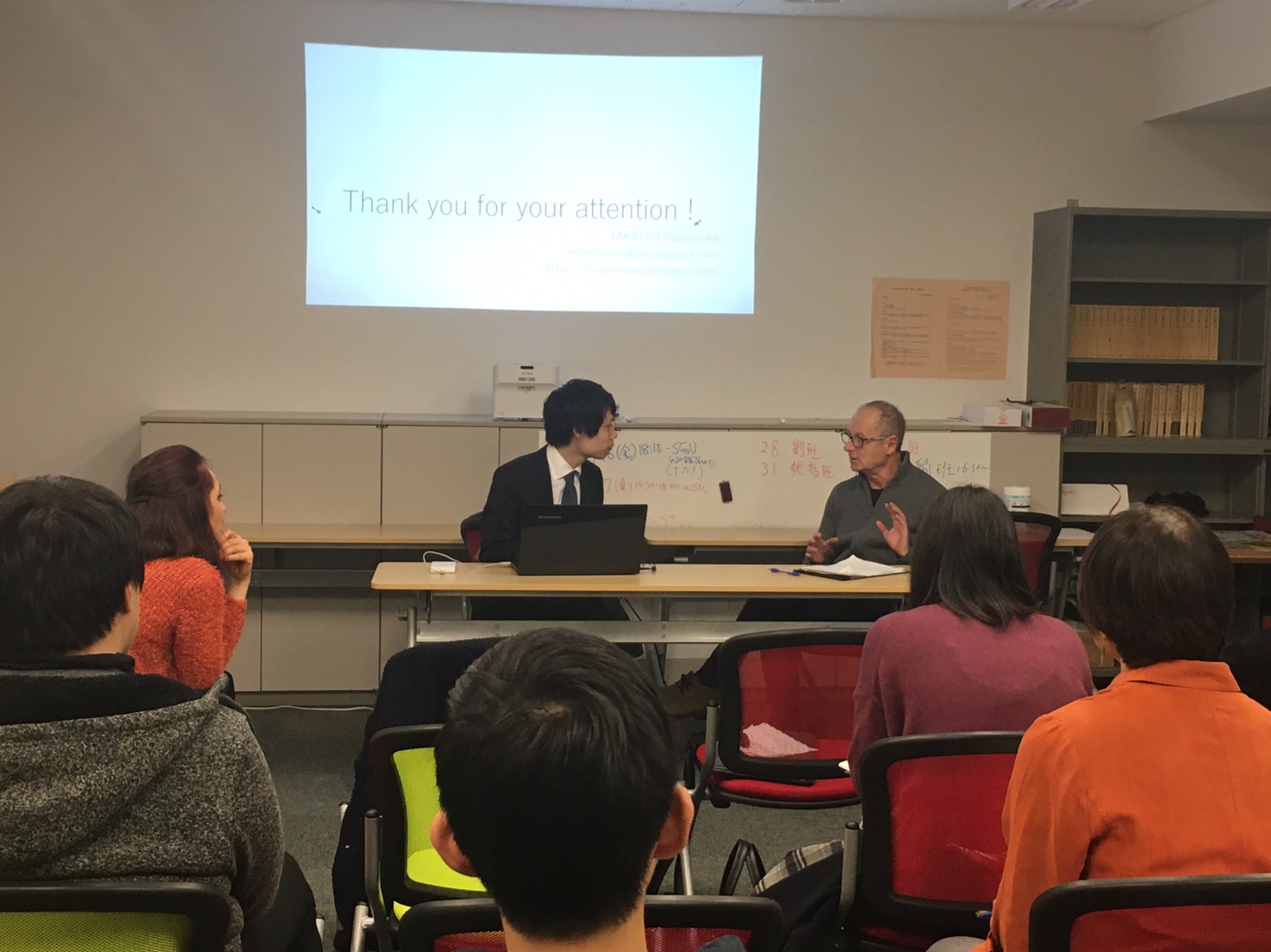On January 23, 2020, Waseda University’s Global Asia Research Center hosted a workshop entitled “Conceptions of Social Innovation and Local Development: A Comparative Analysis between Europe, the United States, and Japan.” Ryunosuke Takatsu, a Ph.D. candidate in socioeconomics at the University of Rennes 2 (France), delivered a research presentation based on his forthcoming Ph.D. dissertation.
First, he explained the definition and history of social innovation. According to Keynesian economics, governments intervened in markets and protected the economy and social well-being of the citizens. From the 1980s, deregulation and privatization have become international trends. The social innovation suggested solving social problems – the distributive function led by the public sector and the market mechanism lead by the private sector. Then, he covered two trends of social innovation in European and Anglo-Saxon countries. Social innovation was taken in civil societies led by social enterprise. They resolved the problem in the social and solidarity economy. On the other hand, social innovation occurred in private enterprises in Anglo-Saxon countries led by social entrepreneurs.
Next, he focused on presenting the case of social innovation in Japan. Social innovation in Japan has been promoted by the collaboration between public sectors and private-civil society sectors. Administrative agency controls the industry-academia-government partnerships. For example, local governments promote the inhabitants in the villages to raise awareness of local problems by holding symposiums and workshops. Furthermore, local governments, specialists, inhabitants, and private firms collaborate to solve local problems.
Following the presentation, there was a lively discussion led by Prof. Stefano Bartolini (University of Siena, Italy). Participants brought up a variety of questions related to comparing on how the social innovations and local development in the U.S., Europe, and Japan and what they have to learn from each other for enhancing the quality of their local communities.

